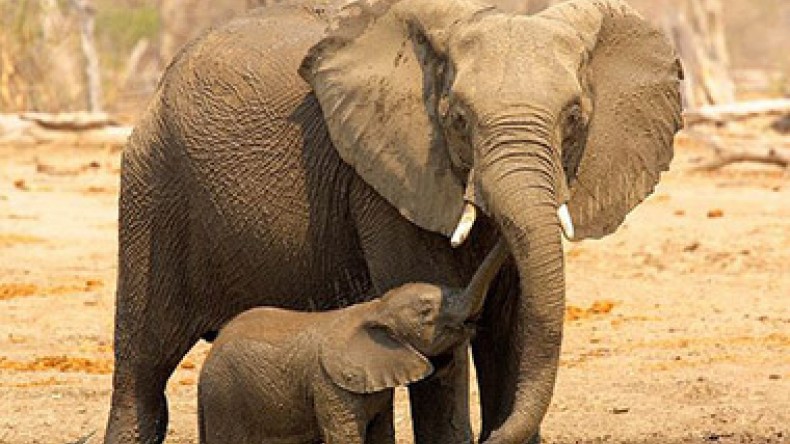
Elephants 'understand human gesture'
African elephants have demonstrated what appears to be an instinctive understanding of human gestures, UK scientists say, according to the BBC.
In a series of tests, researcher Ann Smet, of the University of St Andrews, offered the animals a choice between two identical buckets, then pointed at the one containing a hidden treat.
From the first trial, the elephants chose the correct bucket.
The results are published in the journal Current Biology.
The scientists worked with captive elephants at a lodge in Zimbabwe.
Prof Richard Byrne, a co-author on the research, said the elephants had been rescued from culling operations and trained for riding.
"They specifically train the elephants to respond to vocal cues. They don't use any gestures at all," said Prof Byrne.
"The idea is that the handler can walk behind the elephant and just tell it what to do with words."
Despite this, the animals seemed to grasp the meaning of pointing from the outset.
Ms Smet added that she had been impressed by the animals' apparently innate understanding of the gesture.
"Of course we had hoped that the elephants would be able to learn to follow human pointing, or we wouldn't have done the experiment in the first place," she said.
"But it was really surprising that they didn't seem to have to learn anything.
"It seems that understanding pointing is an ability elephants just possess naturally and they are cognitively much more like us than has been realised."
Prof Byrne said studying elephants helped build a map of part of the evolutionary tree that is very distant from humans.
"They're so unrelated to us," he told BBC News. "So if we find human-like abilities in an animal like an elephant, that hasn't shared a common ancestor with people for more than 100 million years, we can be pretty sure that it's evolved completely separately, by what's called convergent evolution."
The researchers said their findings might explain how elephants have successfully been tamed and have "historically had a close bond with humans, in spite of being potentially dangerous and unmanageable due to their great size."
Newsfeed
Videos






























